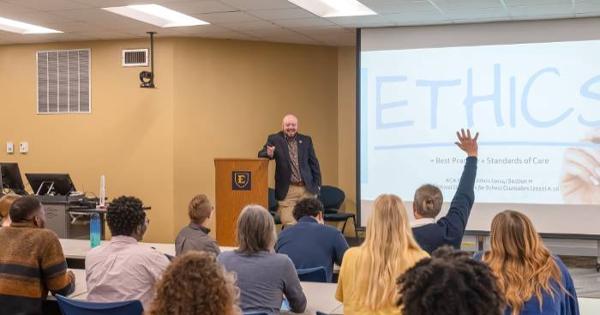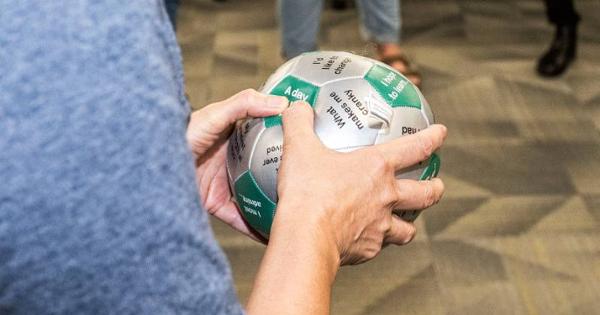MA Counseling Concentrations
The Counseling Program
The East Tennessee State University Graduate Program in Counseling is in the Department
of Counseling and Human Services within the College of Health Sciences. As part of
ETSU, the Counseling Program is committed to diversity and does not discriminate against
applicants or students based on age, sex, race, ethnicity, color, religion, national
origin, disability, veteran status, gender identity, or sexual/affectional identity.
The mission of the ETSU Counseling Program is to prepare students to function as knowledgeable, ethical, and effective counselors in a pluralistic society.
Although each of our counseling faculty have various specialties and interests, the faculty teach and supervise across concentration areas and make every attempt to focus on excellence in the preparation of professional counselors regardless of the setting in which they will be employed. Counseling faculty are committed to creating teaching-learning environments that encourage the active participation of students. Instruction in counseling is founded upon commitment to the following beliefs held by the counselor education faculty at ETSU:
- That the work of the professional counselor is to promote mental health, social and physical well-being, and development of the person, families, organizations, and community with whom the counselor interacts as a professional.
- That counseling is a unique, interactive relationship process which focuses on prevention, problem resolution, mental health, and development by using an understanding of individual, systemic, and social contexts.
- That it is important to aspire to create an atmosphere that promotes self-examination, self-determination, and critical and reflective thinking to facilitate intellectual and emotional development.
- That counselors should continue their own growth, study, and learning throughout their career.
- That a heightened awareness of a multicultural and diverse world and the impact of the dominant culture, the family, and individual behavior on the clients with whom we work, the students we are training, and ourselves is critically important.
- That counselors are called to actionable steps that promote social justice at the client, community, system, and macro levels, which also requires adequate reflection and careful consideration of the interest and welfare of the persons affected by said actions.
The ETSU Counseling Program has traditionally served full-time and part-time students
since 1963. Two master’s level concentrations are offered – Clinical Mental Health
Counseling and School Counseling – with opportunities to take elective coursework
in specialty areas of interest, such as play therapy, grief and loss counseling, telemental
health, and nature-based therapy. In addition, learners can take elective coursework
that can also be applied toward a graduate certificate, such as Nature-Based Therapy and Healthcare Spanish.
The M.A. concentration in Clinical Mental Health Counseling (CACREP accredited) prepares individuals for employment as counselors in entry-level positions in diverse settings such as mental health/substance abuse centers, juvenile court/public offender systems, residential treatment centers, non-profit organizations, etc., and for private practice under supervision while completing post-graduate requirements to apply for state licensure. Students can design their program to prepare them for eligibility as a Licensed Professional Counselor with the Mental Health Service Provider designation (LPC-MHSP). Students are eligible to complete the National Counseling Exam in their final semester and are strongly encouraged to do so as part of their preparation toward meeting the requirements for state licensure as professional counselors.
The M.A. concentration in School Counseling (CACREP accredited) prepares individuals for employment as counselors in entry-level positions in public elementary, middle, and high schools (K-12). Graduates will be adequately prepared to design, implement, and evaluate school counseling programs consistent with the current models of school counseling described by the Tennessee Department of Education and the American School Counseling Association. Students will meet requirements for licensure as school counselors in Tennessee as established by the Tennessee Department of Education (reciprocity exists with Virginia and North Carolina as well). In addition to counseling program requirements, student must take and pass the PRAXIS II to be eligible for school counseling licensure in TN.
Program Goals:
The goals of the ETSU Counseling Program are connected to the Program Mission to prepare
students to function as knowledgeable, ethical, and effective counselors in a pluralistic
society. Thus, all graduates of ETSU’s Counseling Program will demonstrate the following:
- Comprehensive knowledge and skills necessary for success as professional counselors;
- Ability to form and maintain culturally responsive, developmentally informed, and ethically therapeutic relationships;
- Knowledge of and adherence to professional counseling dispositions and competent ethical practice; and
- Awareness of and engagement in professional social justice advocacy.
Additionally, Clinical Mental Health Counseling Concentration graduates will be well-skilled
in the full range of tasks needed for clinical mental health counseling including
interventions for prevention and treatment of a broad range of mental health issues;
roles of mental health counselors; and settings and service delivery models, while
School Counseling Concentration graduates will be well-skilled in the full range of
tasks needed to coordinate a comprehensive, developmental school counseling program
that addresses the academic, career, and social-emotional development of K-12 students.
The objectives of the M.A. Program in Counseling concentrations are reviewed and updated regularly to reflect the field’s ongoing development of knowledge, skills, experiences, and values necessary for counselors to function effectively in the roles for which their program prepare them, as well as to assess successful achievement of Counseling Program goals. These objectives are assessed on a regular basis using feedback from community partners, faculty, students, alumni, field supervisors, and employers of graduates.
Clinical Mental Health Counseling Concentration Objectives:
Students will demonstrate development of an identity as a professional counselor, which includes knowledge of ethical and legal standards and licensure/credentialing requirements specific to clinical mental health counseling.- Students will demonstrate social justice counseling competence, which includes, but is not limited to, areas of multicultural sensitivity, diversity, equity, and inclusion in professional practice.
- Students will demonstrate knowledge of and effectiveness using essential counseling strategies and techniques for establishing and maintaining ethical and culturally competent therapeutic relationships.
- Students will demonstrate the ability to consume and critique research to inform counseling practice.
- Students will demonstrate knowledge of theories and models of clinical and mental
health counseling as well as skills for the prevention and treatment of a broad range
of mental health issues within a culturally diverse context.
School Counseling Concentration Objectives:
Students will demonstrate development of an identity as a professional school counselor, which includes knowledge of ethical and legal standards and licensure/credentialing requirements specific to school counseling.- Students will demonstrate social justice counseling competence, which includes, but is not limited to, areas of multicultural sensitivity, diversity, equity, and inclusion in professional practice.
- Students will demonstrate knowledge of and effectiveness using essential counseling strategies and techniques for establishing and maintaining ethical and culturally competent therapeutic relationships.
- Students will demonstrate the ability to consume and critique research to inform counseling practice within the school setting.
- Students will demonstrate knowledge of theories and models of school counseling as well as skills necessary for developing and implementing comprehensive school counseling development plans, interventions, and strategies to promote equity across professional school counseling settings.
 Dr. White discusses ethics with faculty and students.
Dr. White discusses ethics with faculty and students.

Counseling students doing a group activity.
 Stout Drive Road Closure
Stout Drive Road Closure